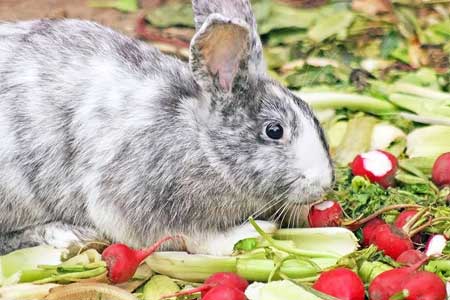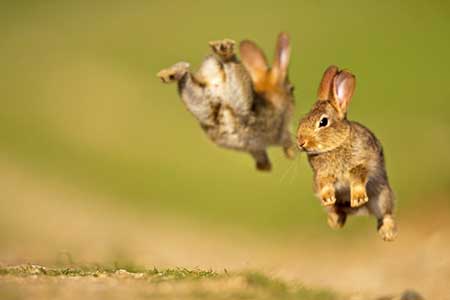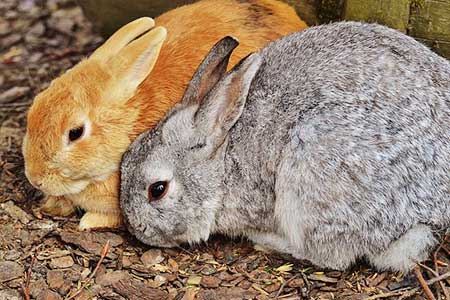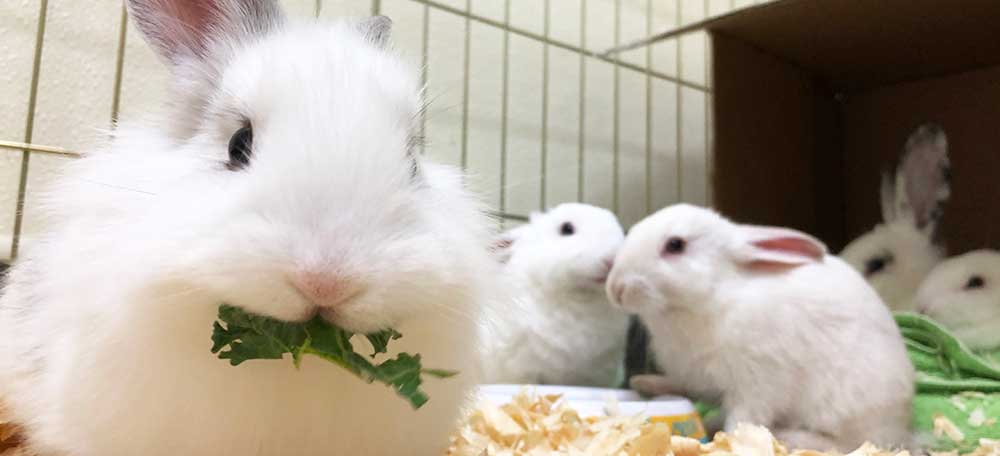Rabbit Care Guide
Cages, enclosures & food - everything you need to know
With frequent handling, rabbits make great social and gentle pets but we need to understand what is required for their proper care and continued health. If you're looking to add a rabbit to your family here's what things you need to know...
Future Owner List:
- A cage with plenty of room (it should have an area for sleeping and an exercise area)
- Fresh fruit and vegetables daily (read on for more information)
- Food bowl
- Drink bottle
- Rabbit specific food
- Bedding for the base of the cage (Meadow hay and we recommend sticking a base of pine shavings underneath this)
- Tunnel and/or other interactive toy for stimulation
- Wood chew
- Salt lick
- Plenty of love and play time to enjoy this gentle and lovable animal
Why pet rabbits make fantastic pets!
Rabbits make ideal pets for numerous reasons - they are gorgeously soft, gentle and social creatures.
They require frequent handling to prevent them from becoming independent and must be carefully handled as they can easily get injured. Rabbits are able to be house trained and it is common for a rabbit to be allowed to free range when its family is home.
The lifespan of a pet rabbit is commonly between six and seven years. There are many different breeds of rabbits which range in size from under 3kg to over 5kg so always take into account whether the breed of rabbit you are looking at will fit into your life.
What should you feed your rabbit?
Rabbits are known for eating lettuce but this is actually not good for their health! A rabbit’s diet should be high in fibre with the staple being hay or grass. They should also receive fresh water daily, dry rabbit specific pellets, and fresh foods for variety and to obtain the spectrun of minerals.

Fresh foods you can feed include:
- carrots (they enjoy the tops too)
- alfalfa sprouts
- bok choy
- pak choy
- celery
- pumpkin
- watercress
- capsicum
- silver beet
- brussell sprouts
- swede.
Other vegetables they can eat in small quantities include broccoli, cauliflower and cabbage.
Rabbits also eat fruit but only maximum of a tablespoon a day. Safe fruits include:
- apple
- pear
- banana
- blackberry
- mango
- apricot
- peach
- pineapple
- strawberries
- blueberries
For something different you can also give them fresh branches off trees such as apple, birch, maple and willow.
Their diet should be made up of approximately 60% hay, 30% rabbit pellets and 10% vegetables and fruit.
If you are unsure whether you can feed something ask your vet or an expert.
Create a stimulating, clean environment for your rabbit:
In creating suitable enclosures for a rabbit, you must ensure that you first select the correct enclosure. This set up should be designed around whether it will be an indoor or outdoor rabbit and considering how often you are going to be able to get it out for handling and exercise.
Rabbits enjoy a large exercise area and a bedding area with lots of hay for warmth and nesting. Generally the cage should be about 4 times the size of the rabbit with a minimum size of 3.5m2 for this space and 10m2 for the enclosure/exercise space. A relaxed rabbit will spread out fully when resting so the length and width of the cage needs to accommodate this. Bedding should have a base of wood shavings topped with hay for warmth. The cage should be cleaned out twice weekly to ensure the cage smells fresh with bedding materials being replaced.

Rabbits can be indoor or outdoor but should be kept in a sheltered spot and away from direct sunlight. Rabbits prefer slightly cooler weather and ideally a maximum heat of between 17-21C. As they don't sweat rabbits can be subject to heatstroke which can be fatal if not treated.
You may find your rabbit rearranging their bedding to get closer to the floor or digging in the ground to lay in a cooler space. Rabbits release heat by dilating blood vessels in their ears enabling higher blood flow to these extremeties where the fur is thinest. This is why you may sometimes see a rabbit's ears droop - the extra blood volume is weighting down the ear.
To make sure the enclosure is stimulating for the rabbit you should arrange it so there are a variety of areas for playing with different areas to explore. For their sleeping house, rabbits should be a base of shavings with plenty of hay for them to cuddle in to. On hot days you can give them a sand area in the shade to mimic what it would be like for them to borrow as they do naturally. They also enjoy tunnels, stumps of wood and food in spots where they have to reach up to nibble. When cleaning out the cage it is also advised to rearrange it slightly or rotate different toys in order to avoid boredom and keep your rabbit happy and stimulated.

Should you have more than one rabbit?
Rabbits are naturally social animals so it is best to have more than one but there are a few things to take into account when getting more than one rabbit. A pair of a male and female is ideal but one must be neutered. Neutering rabbits can also calm them down and aid in preventing ovarian cancer in females. Contact a vet for information on neutering your rabbit.
If you decide to purchase same sex pairs it is best to get females as males can get aggressive towards each other once they reach sexual maturity.
Introducing rabbits must be a slow and patient process. Allow at least a month, have two separate cages side by side and only ever introduce them supervised and in a neutral territory.
If you take good care of your rabbits, they are a very enjoyable and adorable pet.
Top tips to remember…
- Do a daily health check of your rabbit: Skin condition and check for discharges from the eyes, ears and nose. The best way to pick up when something is wrong is to get to know what is normal for your rabbit.
- Rabbits have incisors that grow constantly throughout their life so a wood chew to gnaw on is essential to keep the length of these down.
- Remember, anything that goes into the cage will be chewed so be careful of the toxicity of that is given to them.
- Vaccinations are available for rabbits, read our rabbit vaccination hand-out for information on this
- The more you play with your rabbit, the calmer and more trusting it will become. They can stress and become independent if not handled enough so give them a daily dose of love.
- Rabbits are delicate and can easily become seriously injured so please ensure they are always handled gently and correctly
Take good care of your pet rabbit and they will provide you with plenty of entertainment!

11781